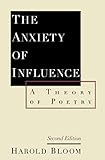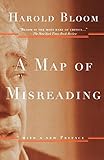承前*1
Eric Homberger*2 “Harold Bloom obituary” https://www.theguardian.com/books/2019/oct/15/harold-bloom-obituary
少し抜書き。
ハロルド・ブルームは英国浪漫主義の研究家として出発したが、その前提としてT・S・エリオットの古典主義に対する反発があり、ブルームをエリオットから解放したのはノースロップ・フライ*3だった。
“Criticism,” observed the literary critic Harold Bloom, who has died aged 89, “starts (it has to start) with a real passion for reading.” Blessed with extraordinary gusto as a reader, Bloom claimed to have read everything. He could quote the classics of English and American poetry by heart. He forgot nothing, and retained his passionate love for literature and belief in its supreme value through dark decades in which “literary theory” – a term he scorned – threatened to displace the study of literature in US higher education.
そして、「影響」論の1970年代;
In the work of Frye, Bloom discovered his “authentic precursor”: “It ravished my heart away. I thought it was the best book I ever read about anything. I must have read it a hundred times between 1947 and 1950, probably intuitively memorised it, and will never escape the effect of it.”Blake’s Apocalypse: A Study in Poetic Argument (1963) was followed by a study of Yeats in 1970, and a year later The Ringers in the Tower: Studies in Romantic Tradition, in which he tried to show, in the face of modernist orthodoxies, that the Romantic imagination was the formative presence in the greatest Victorian and modern poets. In his early 40s, Bloom had become the dominant figure in the academic study of Romanticism and its heritage.
In the 1970s he turned from the study of the Romantic imagination to the subject of originality itself, and its impossibility. In two powerfully influential books, The Anxiety of Influence (1973) and A Map of Misreading (1975), Bloom argued that literary texts were born under the shadow of predecessors. This titanic literary contention between fathers and sons (seldom between mothers and daughters) represented the anxious struggle of the poet before the “cloud of presences” in the very language of poetry itself.“No poet can write a poem,” he argued, “without, in some sense, remembering another poem.” Others had made similar claims, but Bloom’s formulation of relations between poets came with an exotic specialist terminology of ratios: clinamen, tessera, kenosis, daemonization and askesis (that is, swerving, completing, emptying, displacing and diminishing). This mainly served to distract attention from Bloom’s passionate love for poetry itself.

The Anxiety of Influence: A Theory of Poetry
- 作者: Harold Bloom
- 出版社/メーカー: Oxford University Press, U.S.A.
- 発売日: 1997/04/10
- メディア: ペーパーバック
- この商品を含むブログを見る

A Map of Misreading: With a New Preface
- 作者: Harold Ed Bloom
- 出版社/メーカー: Oxford University Press
- 発売日: 2003/05/15
- メディア: ペーパーバック
- この商品を含むブログ (1件) を見る
In the US culture wars, Bloom shared the feeling of heavyweight pontificators such as Allan Bloom (no relation)*4 and George Steiner that the wretched “American century” (the US-dominated 20th century) was the endtime of cultural values as the west had known them for millennia. Yet he called Philip Roth, that maestro of transgression, the greatest of contemporary American novelists, and was scathing of the misdeeds and warmongering of President George W Bush. Increasingly a public intellectual, Bloom fired from the hip. Impact, not consistency, defined his polemical style. He relished his growing celebrity.Bloom’s cultural polemics were sharp-tongued and colourful, but his smile was warm and boyish. There was a roly-poly gentleness about him which reminded students of Paddington Bear. If you came under fire from him, he could be altogether more aggressive and insulting. His targets encompassed Michel Foucault, multiculturalism and a miscellaneous horde of “camp-followers afflicted by the French diseases, the mock-feminists, the commissars, the gender-and-power freaks, the hosts of new historicists and old materialists”. He reserved more than a little scorn (richly reciprocated) for the “wretched” Terry Eagleton*5, leader of the “rabblement of lemmings” and the “School of Resentment”.
*1:https://sumita-m.hatenadiary.com/entry/2019/10/16/093024
*2:See also https://sumita-m.hatenadiary.com/entry/20160705/1467645115
*3:See also https://sumita-m.hatenadiary.com/entry/20071208/1197086548
*4:See eg. Keith Botsford “Obituary: Professor Allan Bloom” https://www.independent.co.uk/news/people/obituary-professor-allan-bloom-1556931.html See also https://sumita-m.hatenadiary.com/entry/20070611/1181573760 https://sumita-m.hatenadiary.com/entry/20090519/1242697722 https://sumita-m.hatenadiary.com/entry/20120627/1340723349
*5:See eg. https://www.lancaster.ac.uk/english-literature-and-creative-writing/about-us/staff/terry-eagleton Also https://sumita-m.hatenadiary.com/entry/20050529 https://sumita-m.hatenadiary.com/entry/20050608 https://sumita-m.hatenadiary.com/entry/20070831/1188590763